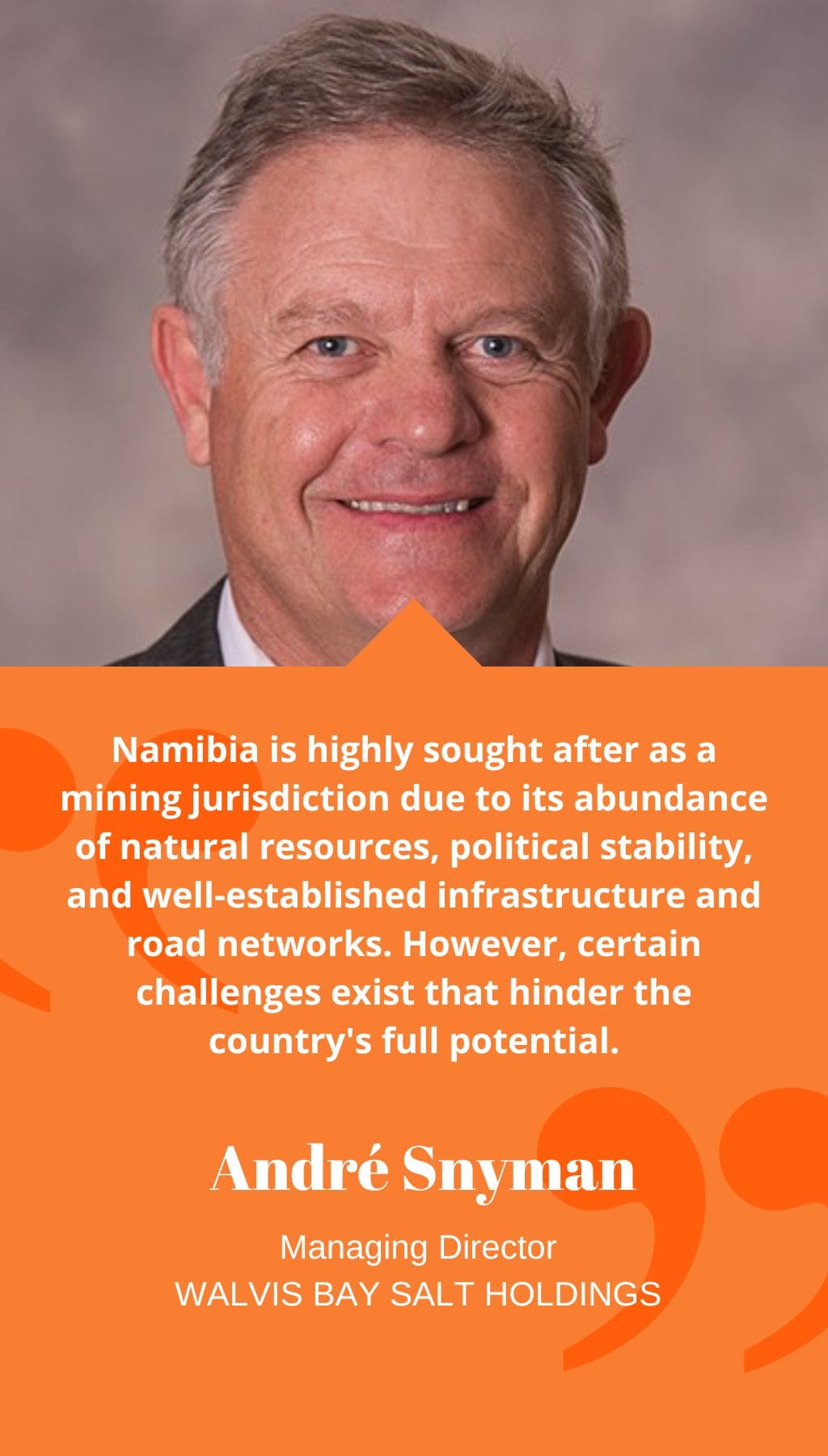
- Namibia | 4 August 2021

Can you provide an overview of Walvis Bay Salt Holdings and its role in Namibia?
Walvis Bay Salt Holdings, a solar salt producer, has been operating for approximately 60 years. The company holds an operating mining lease, which was renewed in 2020 for an additional 15 years. The production process involves the conversion of seawater into solar sea salt, which takes around 20 months. The salt is then processed and sorted into various grades. While the company produces approximately 1 million mt/y, this is still relatively small compared to other salt-producing countries such as Australia and Brazil. Walvis Bay Salt plays a vital role in Namibia by generating export revenue for the country, as its products are distributed internationally and locally under various brands.
How is Walvis Bay Salt working to diversify its market and client base?
Walvis Bay Salt has a vision to become a world-class salt producer and is actively pursuing diversification strategies. The company aims to ensure long-term sustainability by becoming a low-cost producer with high levels of efficiency and productivity. To achieve this, Walvis Bay Salt continues to invest in its people. Additionally, the company has expanded its salt field in recent years, leading to increased volumes and lower unit costs. In 2020, a new salt processing plant was commissioned, offering flexibility in design, sufficient capacity for future growth, and improved processing efficiency, resulting in increased yield and further reductions in unit costs.
Can you provide more details about the company’s diversification efforts?
Walvis Bay Salt is exploring options to beneficiate its waste stream and has received interest from foreign investors to produce bromine from its bitterns. Collaborations with these investors were in progress; however, the project faced challenges amid the pandemic. Before moving forward with investments, the company aims to secure offtake agreements.
What are Walvis Bay Salt’s ESG initiatives, and how does the company engage with local communities?
Walvis Bay Salt believes that its success is rooted in a commitment to the development of its human capital, respect for the natural environment, and consideration for the local community. The company’s corporate social responsibility (CSR) efforts primarily focus on the development of Namibian youth, particularly in education. Walvis Bay Salt has invested N$1 million in a math teaching program, continuing its involvement for the 15th consecutive year. The company also runs an orphanage that currently provides housing for 18 children. In terms of environmental impact, the company prioritizes minimizing its footprint by avoiding the use of chemicals. Walvis Bay Salt takes advantage of natural resources such as seawater, sunlight, and wind, and is exploring various renewable energy options.
How favorable is Namibia as a mining investment destination?
Namibia is highly sought after as a mining jurisdiction due to its abundance of natural resources, political stability, and well-established infrastructure and road networks. However, certain challenges exist that hinder the country’s full potential. Improper management and corruption weaken Namibia’s strengths, while a small population leads to limited domestic consumption. Unemployment rates are high, and the pandemic has exacerbated the situation. The education system faces challenges, including inadequate funding and a shortage of qualified teachers. To enhance its competitiveness, Namibia should focus on attracting foreign investment, improving the education system, ensuring cost-effective energy and water supply, promoting independent power producers, supporting logistical costs for exporting products, combating corruption, reforming labor laws, facilitating international market access for local manufacturers, providing tax breaks, establishing offtake agreements through bilateral agreements, and privatizing basic utilities. Implementing these measures will reduce corruption, increase investment across sectors including mining, and foster job creation. Policy perception is also crucial for investment attractiveness, an area where Namibia excels.














